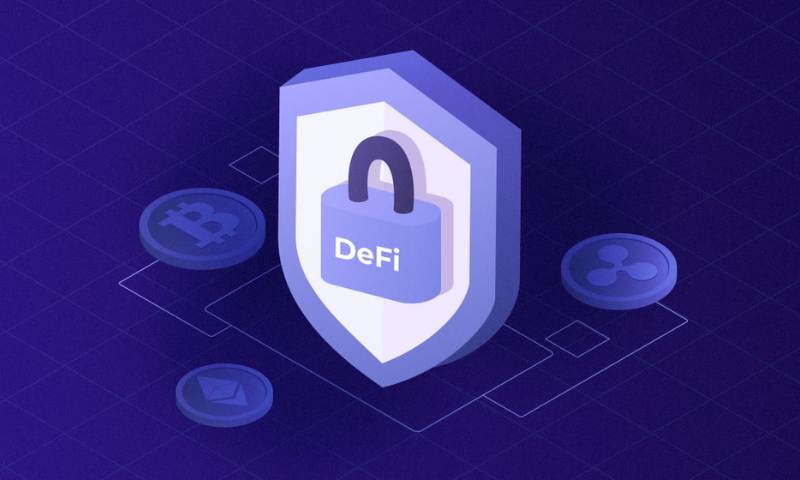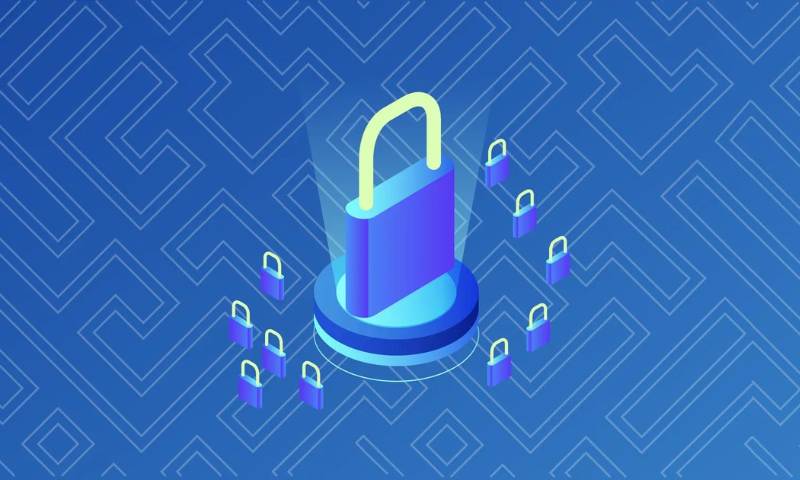Security challenges in DeFi applications: Are Your Investments Safe?
Imagine your hard-earned cash, gone in a click. Stings, doesn’t it? But it’s a dark reality in the booming world of decentralized finance (DeFi). I see it day in, day out—smart folks like you and I, lured by high returns, fall prey to crafty cons and glitches. Today, we dig deep into these pitfalls, so your DeFi dive doesn’t end in disaster. Prepare to tackle smart contract exploits and deceitful rug pulls head-on, understand the tech snags that could cost you big, and equip yourself with top-notch defenses. Stay savvy in this unregulated playground—your pocket will thank you.
Understanding the Landscape of DeFi Security Risks
The Prevalence of Smart Contract Exploits
Smart contracts are like vending machines. You pick a snack, pay, and get your treat. But imagine if the machine had a secret button that gave out free snacks. That’s what smart contract exploits can do in DeFi. Hackers find weak spots in the code. They push the code’s ‘secret buttons’ and take money without leaving a trace. We call these weak spots vulnerabilities. They’re like unlocked doors for those who know where to look.
Smart contract exploits happen more than we’d like. It’s tough to write perfect smart contract code. Just one small mistake can cost millions. That’s why we work hard on security. We double-check, we test, and we get experts to poke at our code before anyone else can.
Rug Pulls in DeFi: A Growing Concern
Rug pulls in DeFi are scary. They’re like magic tricks that end badly. One minute, your money is safe in a new project. The next, it’s gone! The creators pull the ‘rug’ out from under you. They take all the money and run. It’s a big problem because DeFi is like the Wild West. It’s new, exciting, and a bit unknown.
There’s no sheriff in town, which means we must protect ourselves. We can’t just trust any project. We must look at who is behind it, what their goals are, and if their actions match their words.
We also face flash loan attacks. It’s like someone borrows a book from the library, changes the ending, and then returns it before you know what happened. They trick the system into thinking everything’s normal. Then, they walk away with loads of money.
That’s why I’m here, doing my part to keep DeFi safe. I look for the tricks and traps before they catch us out. I help build strong fences around our digital gold.
But even with strong fences, risks are always there. We can’t forget the basics like keeping our wallet keys safe. It’s like not sharing your secret hideout with strangers. And we need smart people always checking for holes in our fences. That’s where auditing of DeFi protocols comes in.
Remember, in DeFi, your investment is only as safe as the code that protects it. Always ask, “Who’s checking the locks?”. Because in the end, it’s not just about making money. It’s about keeping it safe, too.
Technical Vulnerabilities and Their Impact on DeFi
The Challenge of Auditing DeFi Protocols
Auditing DeFi protocols is tough. Experts pore over code, hunting bugs that harm your cash. In DeFi, one small bug can lead to major money loss. Scary, right? Let’s dive into why auditing is key and punches above its weight in keeping our digital dollars safe.
Audits are like health checks for DeFi projects. They spot DeFi security risks waiting to trip us up. Think of them like a detective, seeking clues to prevent a heist on your crypto stash. Without these audits, decentralized finance vulnerabilities could run wild, leading to smart contract exploits and sad wallets.
DeFi, remember, runs on codes that handle millions in crypto. These aren’t just lines of text; they’re the walls guarding your treasure. If these walls have cracks, things like rug pulls in DeFi can happen. That’s when developers bail, taking your money with them. Auditing helps catch these red flags early.
Solidity Security Issues & Code Vulnerabilities
Solidity is the language of Ethereum’s smart contracts, and oh boy, does it need tight security! But here’s the thing: just as any widely used language, Solidity isn’t immune to security issues. These can lead to code vulnerabilities in DeFi—flaws hackers love to exploit.
Smart contracts are brilliant. They let deals happen without middlemen. But when there’s a hole in the contract, it means trouble. That’s where flash loan attacks enter the picture. They’re like speedy roboclockwork, taking advantage of weak spots before anyone can blink.
Auditing of DeFi protocols involves thoroughly reviewing Solidity code. The goal is to prevent stuff like oracle manipulation risks. Oracles feed data to smart contracts, but if someone messes with the data, it’s game over for the contract’s integrity.
Cross-chain security breaches are another head-scratcher. DeFi lets you hop from one blockchain to another, but this can open backdoors for hackers to sneak through. Auditing aims to bolt these doors shut for the peace of our crypto minds.
Now, securing all this isn’t a walk in the park. It needs experts with sharp eyes, ready to spot the sneakiest bugs. Smart contract auditing firms are the unsung heroes here. They’re our cyber-guardians, shielding us from the bad side of tech.
So, where does that leave you and me, the everyday crypto folks? We want to sleep tight, knowing our digital coins aren’t disappearing overnight. But let’s be real. Risk in DeFi? It’s part of the package. Yet, with solid auditing, we stand our ground, daring those DeFi scam artists to try their worst.
Here’s the deal. In the wild west of DeFi, your investments are in uncharted territory. But remember, good folks are working round the clock. They’re patching up the code and building better safes for your digital gold. Keep your eyes open and trust the experts, and you’ll navigate the DeFi frontier like a pro.
Mitigating Risks: Strategies and Best Practices in DeFi Security
Smart Contract Auditing and Oracle Manipulation Risks
DeFi is full of chances but watch out, folks! Bad actors lurk, eager to snatch your dough. So listen up – smart contract audits are critical. They’re like a health check for DeFi’s heart – its code. Experts dig deep, hunting bugs that could bite you hard. But what’s a smart contract audit? It’s when pros check DeFi code to spot mistakes that hackers could use. These pros are like digital detectives, finding slip-ups before bad guys do. This step is super key because, without it, your digital cash could vanish in a flash!
Oracles are another tricky bit. They tell DeFi apps what’s up with prices out in the real world. But if they’re off, even just a tad, you can bet there’s trouble brewing. Think about it: wrong prices can mess up trades and hurt your wallet bad. No joke! This means we need top-notch oracles that no one can mess with. If we nail that, our investments stand on solid ground.
Defending Against Flash Loan Attacks and Liquidity Pool Exploitation
Flash loans? Yeah, they’re cool but risky, too. They let you borrow loads of crypto cash quick, without any backing. But here’s the catch – you gotta pay it back in the same block. So where’s the risk? Well, if someone’s crafty, they can twist this feature to mess with DeFi’s inner workings. Imagine taking a huge flash loan, gaming the system, then making off. Not good. This means we gotta be slick and spot these tricks early. That’s where smart peeps in DeFi put big brains together to build tough locks on flash loans.
And, hey, let’s chat about liquidity pools. They’re where you drop in your crypto to help trades flow easy. But what happens if someone pulls a sneaky one? They might punch in a big fake trade to drag prices their way, then bail with more than they put in. This hustle is called ‘liquidity pool exploitation’. It’s like someone dipping in the till – not cool! So here’s what we have to do: tighten things up. We need a hawk’s eye on those pools, catching crooks before they can dive.
Remember this, pals: staying safe in DeFi isn’t a one-person show. We all have to keep eyes peeled and brains on full alert. When we audit like aces, keep oracles straight, and lock down loans and pools, our DeFi world gets a little bit safer every day. And that’s a win for all of us!
Navigating Regulatory and Compliance Issues in DeFi
DeFi Regulatory Concerns and Compliance Challenges
As a DeFi security specialist, I see rules change all the time. These are often due to DeFi’s fast growth and the world’s different laws. Keeping up is hard but vital for your money’s safety.
The main question is “Are DeFi platforms legal?” The short answer: it depends. Each country has its own take. Some see DeFi as a threat, others as a financial revolution. It’s not black and white. DeFi exists in a gray zone, often just out of reach of old financial laws.
Let’s talk about protecting your investments. Here’s where things get tricky. Traditional banks have insurance and are monitored by government agencies. But DeFi is new and mostly online. This means less protection for you. The lack of clear rules can lead to money losses.
What about when you’re tricked? Fraud and theft happen. But DeFi platforms often skip over KYC- know your customer. This means anyone can use these platforms. If someone runs off with your money, it’s harder to track them down.
Now, think about smart contract exploits. They’re like hidden traps in the code that people can use to steal. This isn’t a small problem. Millions of dollars can be lost in minutes. So, this makes auditing DeFi protocols a big deal.
You might hear the term “rug pulls in DeFi” a lot. It’s when the folks running a DeFi project just take all the money and run. It’s a real risk and happens more than we’d like.
Seeing so many flash loan attacks in the news? It’s when someone borrows loads of money for just seconds, without collateral. They use it to mess with markets and steal funds. It’s a clever trick, but only fun if it’s not your money they’re taking.
Let’s not forget about oracle manipulation risks. In DeFi, an oracle is like a bridge between the real world and the digital one. If someone twists the info on this bridge, prices can go wild, and investors lose money.
Cross-chain security breaches are also a big headache. We often move tokens from one chain to another. If someone messes with this process, your tokens might vanish.
But there’s also some good news. Some DeFi protocols offer their kind of insurance coverage. It’s to help you get some money back if things go south. This doesn’t cover everything but it is better than nothing.
Lastly, DeFi governance weaknesses are there. How a DeFi project is run can make or break your investment. Decisions made by just a few can change the rules of the game. This can affect everyone’s money, usually not in a good way.
The lesson here is to stay smart. Always keep an eye on the risks. And remember, in DeFi, rules are still being written, and your safety net looks different. Be watchful, informed, and careful with where and how you invest.
In this post, we’ve dived into DeFi security risks, from smart contract flaws to rug pulls that hurt users. We looked at the tough job of checking DeFi code and how bugs can cause big trouble. Next, we learned ways to lessen these risks with top strategies and knowing what makes DeFi safe. We also tackled the rules DeFi faces and how insurance and smart rules can help.
I’ve shared key tips on staying safe in DeFi. It’s clear that as DeFi grows, so must our efforts to protect it. Let’s stay sharp and think smart in this space. Stay safe out there!
Q&A :
What are the main security challenges facing DeFi applications?
Decentralized Finance (DeFi) applications face a range of security challenges that stem from their reliance on complex smart contracts, potential protocol vulnerabilities, and the open-source nature of their development. These challenges include smart contract exploits, code vulnerabilities, untested algorithms, and risks associated with user error, such as the lack of recovery options for lost private keys.
How do smart contract vulnerabilities affect DeFi security?
Smart contracts are automated agreements that run on the blockchain. They are pivotal to DeFi applications but can also be a central point of failure. If a smart contract has a bug or a vulnerability, it can be exploited by malicious actors. These vulnerabilities can lead to the loss of funds either through direct theft or due to an inability to access the contracted funds.
Can DeFi applications be susceptible to hacks and frauds?
Yes, DeFi applications can be susceptible to hacks and frauds. Despite the secure underpinnings of blockchain technology, DeFi platforms are built on top of the blockchain and thus inherit all the common risks associated with digital financial transactions. These risks include smart contract bugs, front-running, pump and dump schemes, exit scams, and more. Users should perform due diligence and use DeFi platforms with robust security measures in place.
What can users do to minimize security risks in DeFi applications?
Users can take several steps to minimize security risks when using DeFi applications. Some of these steps include using hardware wallets to store tokens, interacting with well-audited and reputable smart contracts, staying informed about the latest security practices, and participating in DeFi communities to better understand any potential risks.
Are there any emerging solutions to enhance DeFi application security?
Yes, the DeFi community is actively seeking solutions to enhance security. Emerging solutions include insurance protocols to cover smart contract risks, more rigorous testing and audit protocols, improved smart contract development frameworks to prevent common vulnerabilities, and the incorporation of formal verification methods for smart contracts to ensure they behave as intended.


